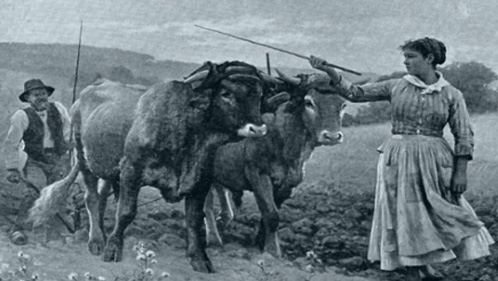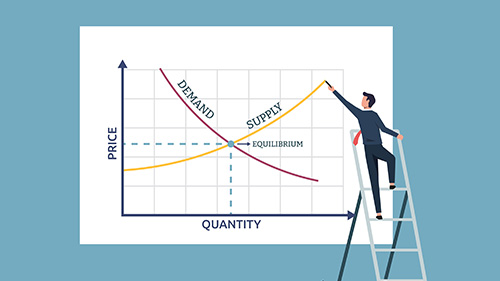10 YA Reads for Summer
I just finished my tenth year teaching high school English and let me tell you, teens like to read… well, most of them. Some of you might be doubting...
AP & Honors Mathematics
Explore Wiley titles to support both AP and Honors mathematics instruction.
Literacy Skills & Intensive Reading
Connections: Reading – Grades 6–12
Empower student success with a proven intensive reading program that develops strong reading skills in striving readers.
Drama, Speech & Debate
Basic Drama Projects 10th Edition
Build students’ confidence and competence with comprehensive, project-based theatre instruction.
Literature
Connections: Literature
Support learners as they study dynamic, relevant texts and bring the richness of diverse voices to students through literature.
Literature & Thought
Develop critical thinking, reading, and writing across literacy themes, genres, historical eras, and current events.
Language Arts
Vocabu-Lit® – Grades 6–12
Help students build word power using high-quality contemporary and classic literature, nonfiction, essays, and more.
Connections: Writing & Language
Help students develop grammar, usage, mechanics, vocabulary, spelling, and writing and editing skills.
Reading/English Language Arts
Measuring Up to the English Language Arts Standards
Incorporate standards-driven teaching strategies to complement your ELA curriculum.
English Language Learners
Measuring Up for English Language Learners
Incorporate research-based best practices for ELLs with an approach that includes a focus on language acquisition strategies.
Mathematics
Measuring Up to the Mathematics Standards
Incorporate standards-driven teaching strategies to complement your mathematics curriculum.
Foundations
Measuring Up Foundations
Help students master foundational math skills that are critical for students to find academic success.
Science
Measuring Up to the Next Generation Science Standards
Give students comprehensive NGSS coverage while targeting instruction and providing rigorous standards practice.
Assessment
Measuring Up Live
Deliver innovative assessment and practice technology designed to offer data-driven instructional support.
For a better website experience, please confirm you are in:

This lesson module can be used by regular or AP® World, U.S., or European History teachers to develop an understanding of how sport has been used as a "tool" to assimilate Indigenous cultures into the Imperial state's economy, politics, and culture. Portions or all of the lesson modules could also be used in Sociology, Anthropology, Government, and Economics courses.
Early modern and modern nation states have used many methods to incorporate colonial peoples into their world and accept their culture as superior. Education, music, art, and fashion and dress have been Imperial states' strategies to make the Indigenous people look and think like them. Introducing Imperial states' sport is another. This module introduces three lessons to help students understand how sport has been used for colonial advantage and control.
First, a comparative lesson idea where students in small groups use the digital resources provided to explore how various Imperial states used sport as a strategy to gain power and control. Then meld/synthesize those specific colonial state examples into a "model" or formula as to how, in a continuity over time, Imperial states used sport to assimilate Indigenous people.
Second, students will use digital resources seen in this module to write a Long Essay Question (LEQ) (developed by me) on the topic of Imperialism and sport in the modern era. Students can begin to develop essay writing skills of thesis and contextualization along with providing evidence to support a historical argument.
And third, teachers can adapt a 2012 College Board APWH Documents Based Question (DBQ) to their own needs or to the current AP® history DBQ rubric to teach students how to source documents, develop an argument using documents, write a thesis and context analysis, and analyze evidence beyond the documents provided in their historical argument.
John Maunu is a College Board AP® World History: Modern consultant who teaches summer workshops nationally. He is a co-moderator of the College Board® APWH: Modern Teacher Community and a Digital Resources Editor for the World History Connected Online Journal. He was an AP® European and World History teacher for many years and is currently an online consultant for AP® World History: Modern in Michigan. John has also been a Senior Reviewer and item writer for many editions of the AP® World History: Modern coursebook by AMSCO® (2015, 2017, 2018, and 2020 editions).
Advanced Placement® is a trademark registered and/or owned by the College Board, which was not involved in the production of, and does not endorse, this product.

I just finished my tenth year teaching high school English and let me tell you, teens like to read… well, most of them. Some of you might be doubting...

The following lesson plan uses the historical thinking skills of comparative and cause and effect to analyze two historians' perspectives on the...

Gender and power are key themes in our world: both past and present. Women, especially, have been fighting for equality and power for generations....

With just one percent of students earning the complexity point on the 2021 AP® World History DBQ, is teaching it even worth it? John Maunu says,...

The teaching of AP® World History can be a daunting task at times. Teachers are asked to teach over 800 years of historical content and then develop...

The Supreme Court of the United States is often seen as the most distant and befuddling branch for my students. Whether it is misunderstanding their...

One of the most vexing problems facing students and teachers alike is the teaching of Federalist #10. Federalist #10 and the issue of factions is...

One of the most critical skills students will need on the AP® United States Government Exam is data literacy. Not only will there always be a...
.jpg)
Happy Halloween week! For those wanting to sprinkle a little Halloween spirit into the classroom this week, the attached lesson plan uses the novel ...

One of the most important goals of civics education is to get students to understand the imperfections of the constitutional system of the United...

We want students to discover and wonder about the world around us. That is at the core of social science education. How do we explain the world...

One of the personal stories I frequently share with my students is how I nearly became a lawyer. I majored in political science and philosophy in...
